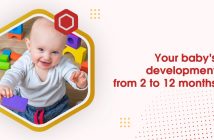Acquiring true Independence is not an easy feat. The foundation of this indispensable quality is built during childhood and you as a parent have the power to inculcate this skill in your child. But firstly, let’s explore what does independence really mean? This blog is all about Is your child independent or contingent?
Independence entails being able to take care of your own needs and to assume responsibility for your decisions while considering both the people around you and your environment.
But children today are often contingent individuals who are dependent on others for how they feel about themselves. Unfortunately, parents unwittingly foster this dependence, giving in to their own needs for power and to remain a dominant force in their child’s life.
So, how can you spot contingent children?
- They need outside incentive to achieve.
- They have no ownership of their lives.
- They take little responsibility for their own thoughts, emotions, and actions.
- They are poor decision makers.

This dependency built in the young age is tough to eliminate in adulthood. But an awareness of what a contingent child experiences is important for parents so they can consciously work towards creating children who are truly independent. As a parent, what can you do to build independence in your child?
- Intrinsic motivation: Allow your child to find their own reasons to achieve.
- Let them explore: Give them the opportunity and guidance to explore activities of their own choosing.
- Low extrinsic reward: Use extrinsic rewards appropriately and sparingly.
- Collaborate not control: Don’t try to control your child’s every move and thought. Allow them to experience a collaborative rather than a controlled relationship with you. Consider and respect their original ideas and interests.
- Let them decide: Independent children are often put in situations to weigh their options and, with the support and guidance of their parents, make their own decisions. Let them decide and take responsibility for their choices. Be the guide, not the decision-maker.
For a more concrete independence training, you can focus on the following life skills that your children must become exposed to as they reach adulthood:
- Financial skills: Teach them the value for money and how to handle it effectively and responsibly.
- Household management: Being able to manage your home, cooking for yourself and taking care of your well-being are crucial to an independent life. Teaching these skills to your child will be a blessing for them.
- Emotion regulation: Set an example for them on how to manage their emotions in a healthy way. Teach them how to face their emotions head-on and learn to self-soothe. Suppressing one’s emotions is not a healthy sign. Acknowledge, accept and resolve.
- Goal setting skills: Without goals we all are on a merry-go-round chase. Help your child set short-term and long-term goals. Achieving those goals will infuse them with self-confidence and grit.
Assist your children to become the best version of themselves. Give them the environment wherein they can acquire these crucial independence skills. Let them spread their wings and live their lives with responsibility and accountability. Become a creator of a future generation that is independent, not contingent.







